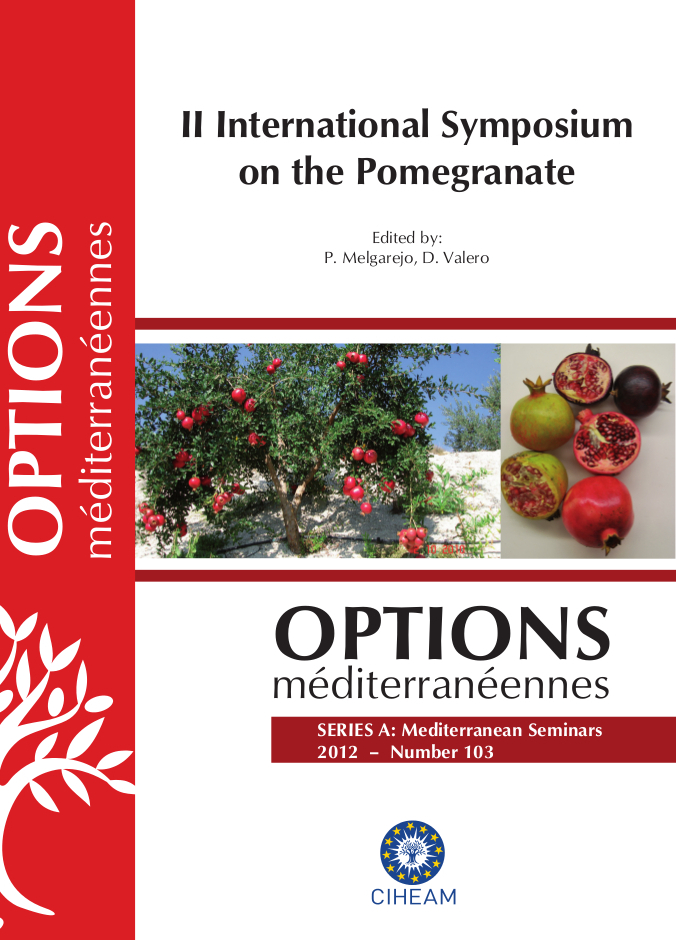| Article précédent | p. 241-244 | Article suivant |
Reduction of chilling injury of pomegranate by heat treatment before cold storage
Pomegranates are highly perishable fruit and sensitive to chilling injury (CI) when stored below 5ºC, manifested as skin browning, surface pitting, higher susceptibility to decay and reduction in both internal and external fruit quality. Thus, the aim of this experiment was to study the effect of hot water dip at 45 ºC for 4 min on reducing CI in pomegranates after storage at 2ºC for 15-90 days plus 3 days at 20ºC. Pomegranates developed CI, manifested as increases in skin browning and electrolyte leakage, which were highly correlated. The severity of damage in control fruit was related to loss of fatty acids with a concomitant reduction in the ratio of unsaturated/saturated fatty acids during storage. These CI symptoms were slightly, but significantly reduced in heat-treated pomegranates. In addition, the heat treatment induced increases in free putrescine and spermidine during storage. These higher polyamine levels as well as the maintenance of the unsaturated/saturated fatty acid ratio during storage could account for the maintenance of membrane integrity and fluidity and the reduction of CI.
- [ Afficher ]
- [ Télécharger ]
- [ Exporter la citation ]
Vous pouvez télécharger la citation au format :
- [ Imprimer ]
-
Mots-clés
ACIDE GRAS, BRUNISSEMENT ENZYMATIQUE, FERMETE, PUTRESCINECiter cet article
Martínez-Romero D., Mirdehghan S.H., Valverde J.M., Serrano M., Guillén F. Reduction of chilling injury of pomegranate by heat treatment before cold storage. In : Melgarejo P. (ed.), Valero D. (ed.). II International Symposium on the Pomegranate. Zaragoza : CIHEAM / Universidad Miguel Hernández, 2012. p. 241-244. (Options Méditerranéennes : Série A. Séminaires Méditerranéens; n. 103). 2. International Symposium on the Pomegranate, 2011/10/19-21, Madrid (Spain). http://om.ciheam.org/om/pdf/a103/00006956.pdf



